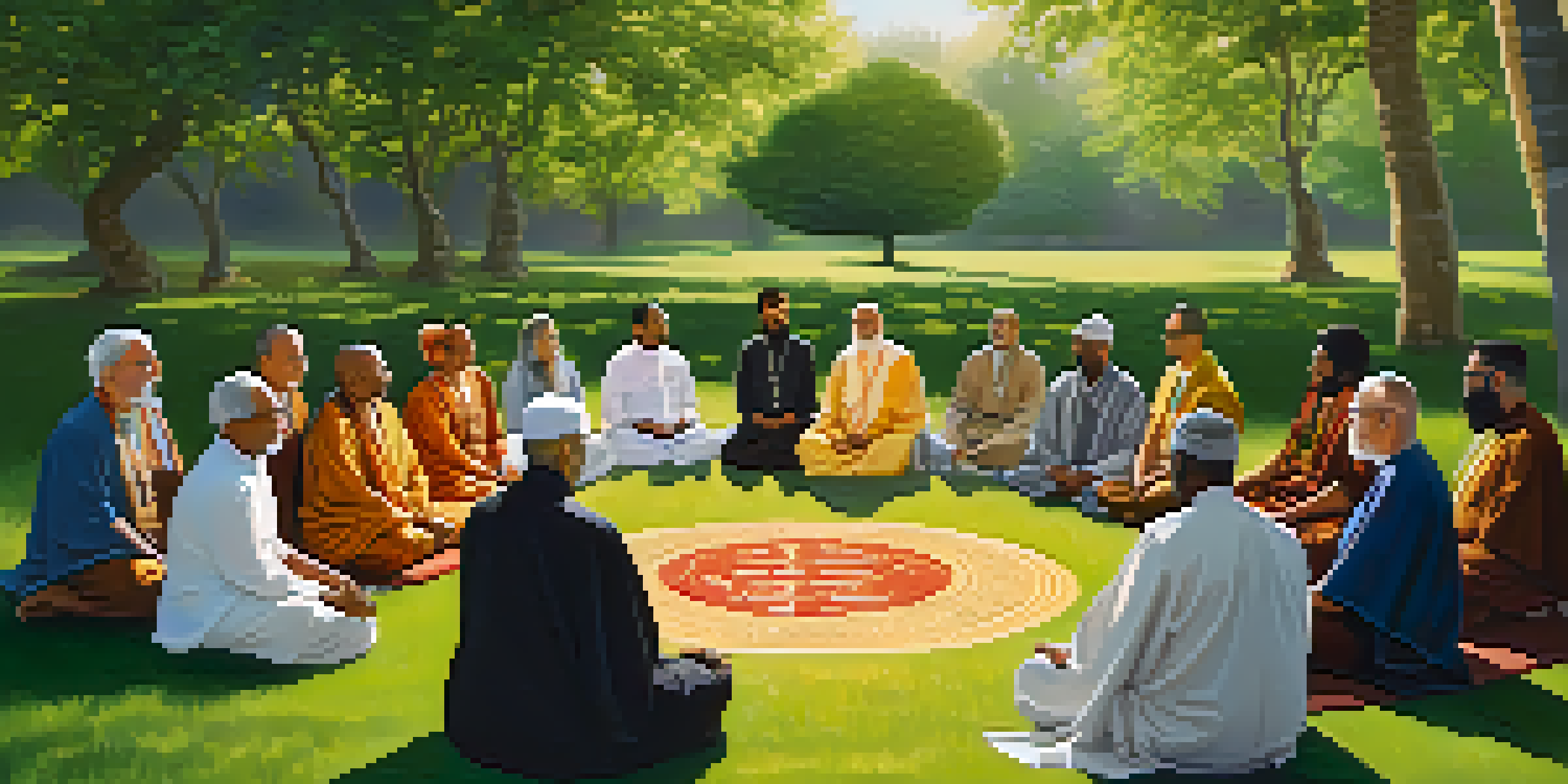The Influence of Spiritual Leaders on Nonviolence Movements

Understanding the Role of Spiritual Leaders in Society
Spiritual leaders often serve as moral compasses for their communities, guiding individuals toward principles of compassion, justice, and peace. Their teachings frequently emphasize the importance of love and understanding, making them influential figures in society. By promoting values that encourage nonviolence, these leaders can unite people across diverse backgrounds and beliefs. This unity is essential for fostering a culture of peaceful conflict resolution.
Historical Examples of Spiritual Leaders and Nonviolence
Throughout history, various spiritual leaders have played pivotal roles in nonviolent movements. For instance, Mahatma Gandhi's philosophy of 'Satyagraha' — or truth-force — was grounded in spiritual principles, emphasizing nonviolent resistance to oppression. Similarly, Martin Luther King Jr. drew on his Christian beliefs to advocate for civil rights through peaceful protests. These examples illustrate how spiritual teachings can catalyze significant social change.
Spiritual Leaders as Moral Guides
Spiritual leaders guide communities toward compassion and peace, promoting values that encourage nonviolence and unity.
The Power of Nonviolent Communication
Nonviolent communication, a concept popularized by Marshall Rosenberg, encourages expressing needs and feelings without aggression. Spiritual leaders often embody this practice, promoting dialogue over discord. By fostering open communication, they help communities navigate conflicts constructively. This approach not only diffuses tension but also builds empathy and understanding among individuals.
Mobilizing Communities through Spiritual Teachings
Spiritual leaders have a unique ability to mobilize communities around shared values and goals. Their messages resonate deeply, inspiring individuals to participate in nonviolent movements. For example, the teachings of the Dalai Lama emphasize compassion and kindness, motivating followers to engage in peaceful activism. This collective action can lead to powerful movements that challenge injustice without resorting to violence.
Historical Impact of Nonviolence
Figures like Gandhi and Martin Luther King Jr. exemplify how spiritual teachings can drive significant social change through nonviolent movements.
The Intersection of Faith and Social Justice
Many spiritual leaders view social justice as an integral part of their faith. They advocate for the marginalized and oppressed, emphasizing the need for equality and human rights. This intersection of faith and activism empowers individuals to take a stand against injustice through nonviolent means. When spiritual teachings align with social justice efforts, they create a compelling call to action that resonates widely.
Challenges Faced by Spiritual Leaders in Nonviolence
Despite their influence, spiritual leaders often face challenges when promoting nonviolence. Resistance from political entities or societal norms can undermine their efforts. Additionally, the rise of violent extremism poses a significant threat to their message. However, many leaders remain steadfast, using their platforms to advocate for peace and reconciliation even in the face of adversity.
Challenges to Promoting Nonviolence
Despite facing resistance and threats, spiritual leaders continue to advocate for peace and reconciliation in their communities.
The Continuing Legacy of Nonviolent Movements
The influence of spiritual leaders on nonviolence movements continues to inspire new generations. Contemporary activists often reference the teachings of figures like Gandhi and King as they strive for social change. This legacy highlights the enduring power of spiritual guidance in shaping peaceful resistance. As long as these teachings are remembered, the spirit of nonviolence will persevere.
Conclusion: The Importance of Spiritual Leadership in Peace
In conclusion, spiritual leaders play a crucial role in advocating for nonviolence and social justice. Their teachings not only inspire individual action but also foster collective movements aimed at creating a more peaceful world. As we navigate complex social issues today, the wisdom of these leaders remains relevant and necessary. By embracing their messages, we can contribute to a culture of nonviolence and understanding.